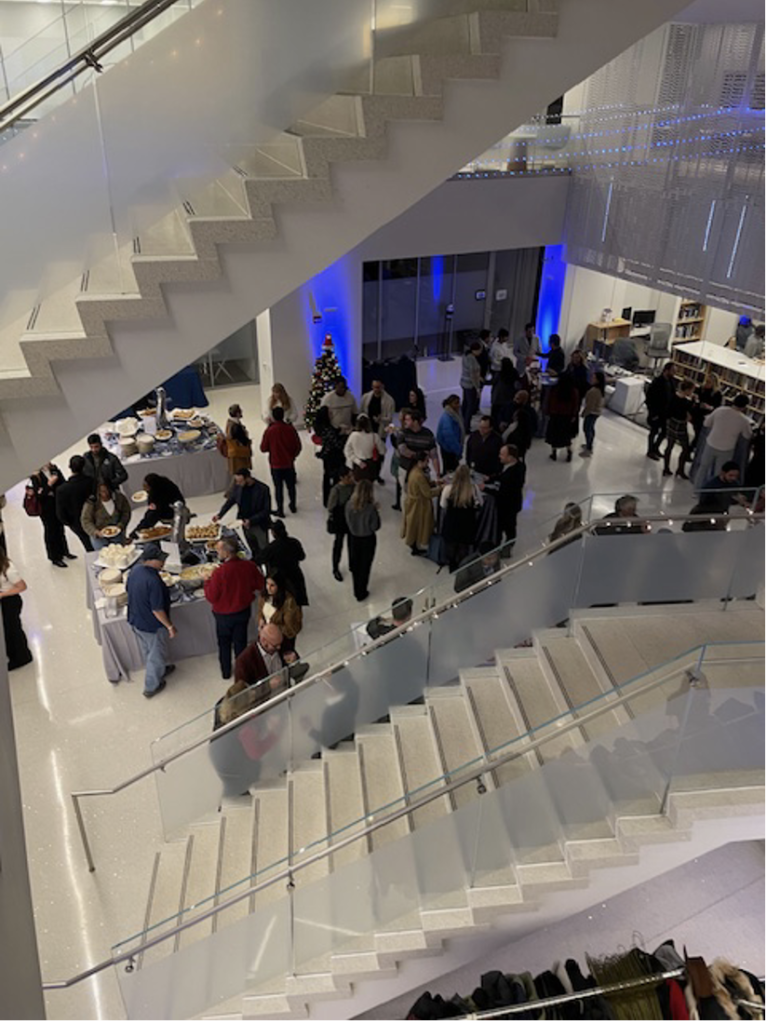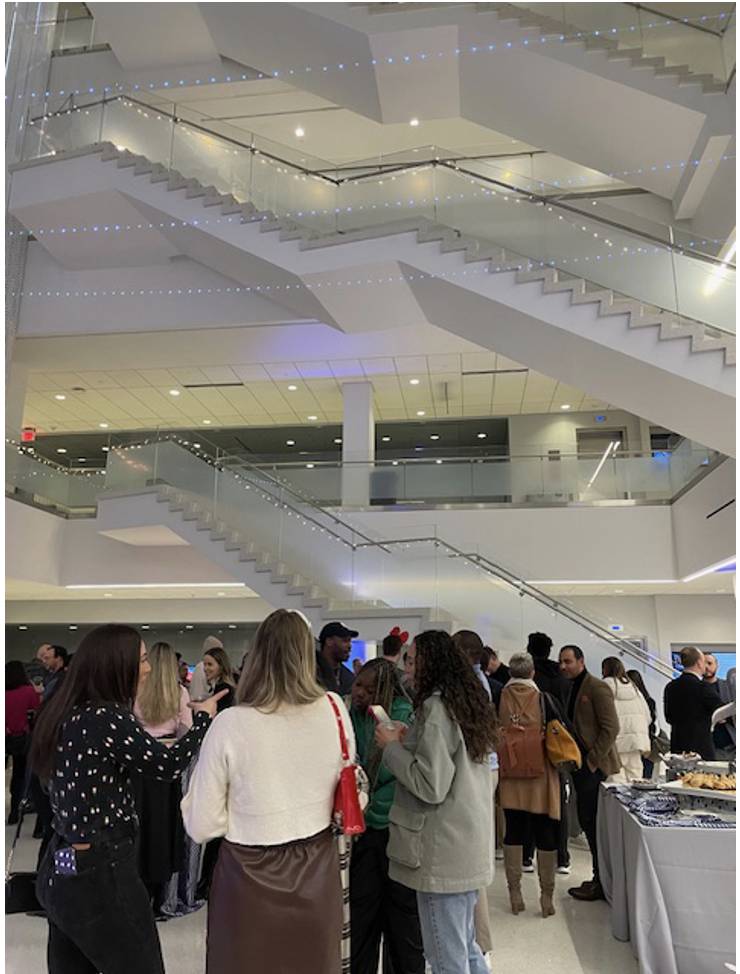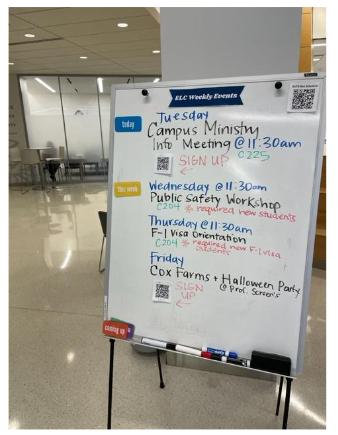Readers of Mission in Motion recognize the Examen as a common feature of the blog. Many articles describe this core Jesuit spiritual practice or use it to inspire reflection about an event or program at SCS. Sometimes, the blog even constructs a post as a form of Examen. This practice is one that invites interior reflection on the events of a period of time with the purpose of prayerfully and sensorially re-engaging with those experiences and making spiritual meaning of them.
The reflective steps of the Examen process involve settling in and becoming centered in the presence of the Divine and then growing in awareness of particular encounters with gratitude, consolation, desolation, and a hoped-for resolve for the future. The point is to sift through the data of experience to discern how one is called to move from reflection on experiences, both the joyful and the challenging, toward choices and actions of greater love and generosity. Individuals can do the Examen and so can entire groups or organizations, like Georgetown, which is currently undertaking its own Mission Priority Examen, a reflective self-assessment of the University’s commitments to Jesuit mission and identity.
As we sit on the precipice of a new year, I offer a brief Examen on SCS in 2023. In next week’s post, Rabbi Rachel will offer some reflections about the year we had and the year to come. In this spirit of deeper meditation on the meaning of our shared Georgetown experiences in 2023, I invite you to join me in this Examen. Take a few minutes to settle into some quiet. This is especially important as we transition from a long semester of work and study and prepare for some time of quiet and rejuvenation. As you settle in, I invite you to ask for insight and new self-knowledge during this time of quiet. When you feel grounded in the silence, I then invite you to ponder these questions slowly:
- Take a few minutes and notice all of the significant events of the last year. These might be personal events or events you experienced with a group (for example, a class, a work team, family, community organization, etc.). Allow these significant moments to flow by in your consciousness one-by-one as in a parade. Do not yet judge or assess the moments, just allow them to pass back into your present awareness.
- As you sift through all of these significant moments, what experiences rise to the surface? In particular, what encounters with Georgetown feel most important to you at the end of the year? I invite you to focus on the most important moments and let the less significant experiences move to the side.
- What is one significant moment from this last year that brings you deep gladness and joy? A moment that, in Jesuit spirituality, brings consolation? These kinds of moments stir within us an impulse and an inclination to savor more greatly, express more gratitude, and share ourselves with others with more magnanimity.
- Take a moment to explore a moment that brings the opposite feelings of desolation. Was there a significant experience in 2023 that challenged you to the core of your being, perhaps causing you to doubt your self-purpose or become skeptical about the good intentions of others? Did times arise in this year that drained you of energy and led to nagging self-doubt or disbelief?
- As you consider the year ahead, what from 2023 would you like to do differently, or better, or more lovingly in 2024? Grounded as we are in the Spirit of Georgetown, how are you called in the next year to be an agent of more justice in the world and more generosity and understanding in your communities?
As I look back on our SCS 2023, I notice lots of gratitude that arises from my prayerful Examen. I recall the generous availability that students demonstrated during our annual retreat (“SCS Student Retreat Steps Outside of the Ordinary into Rest and Reflection”). I also remember students, staff, and faculty coming together to support one another after the tragic loss of a member of our community (“Coming Together in Times of Challenge and Loss”). I remember the inspiration I felt during Jason Kander’s 2023 Commencement address when he challenged us to reconsider what it means to be brave by acknowledging our needs for mental health support (“SCS 2023 Commencement Emphasizes Celebration, Care for Self, Commitment to Others”).
There are so many other important moments from the year that rise to the surface of a longer reflection on our SCS commitment to Jesuit mission and values. For now, I am going to look ahead with gratitude and hope for another year of journeying together with you in this sacred work.



